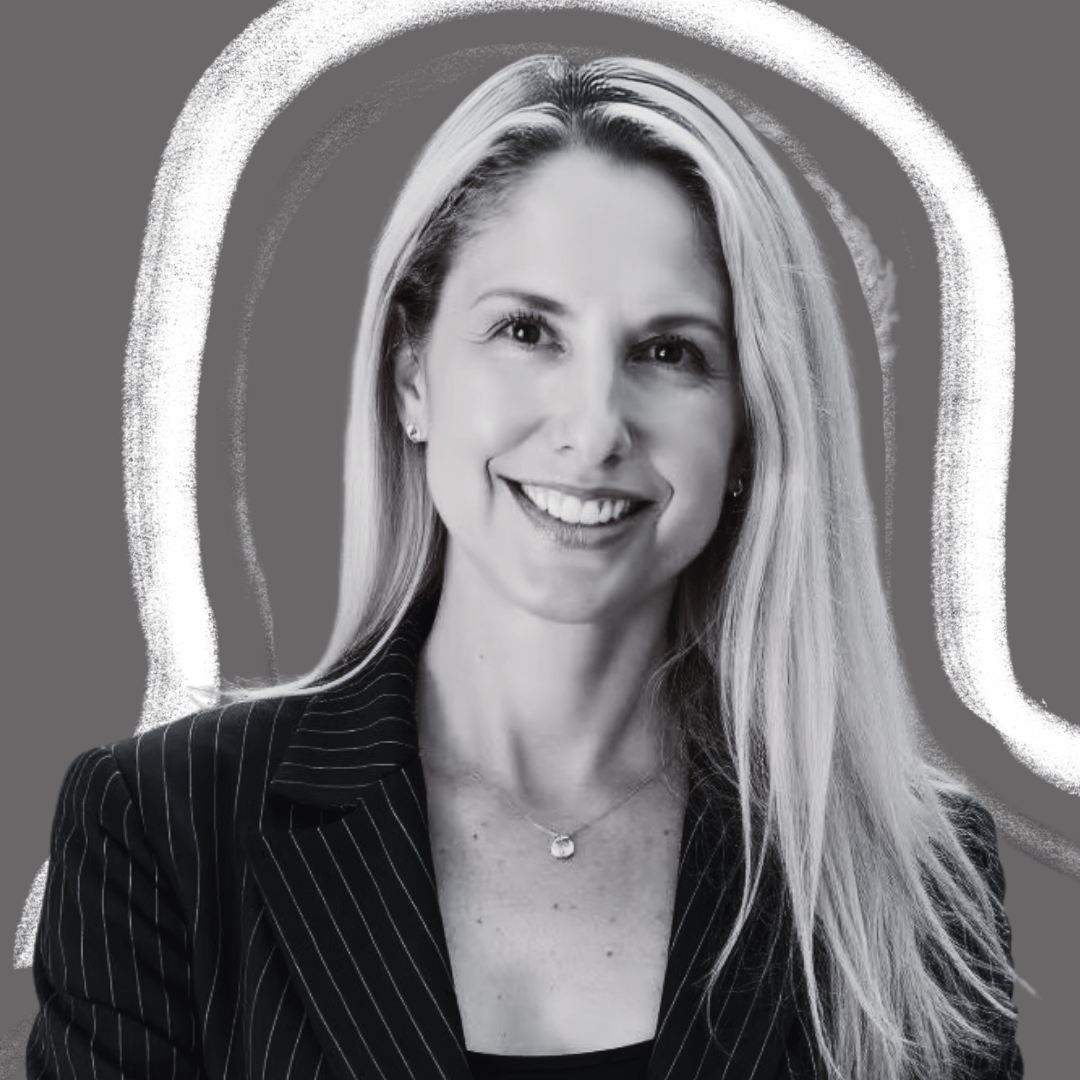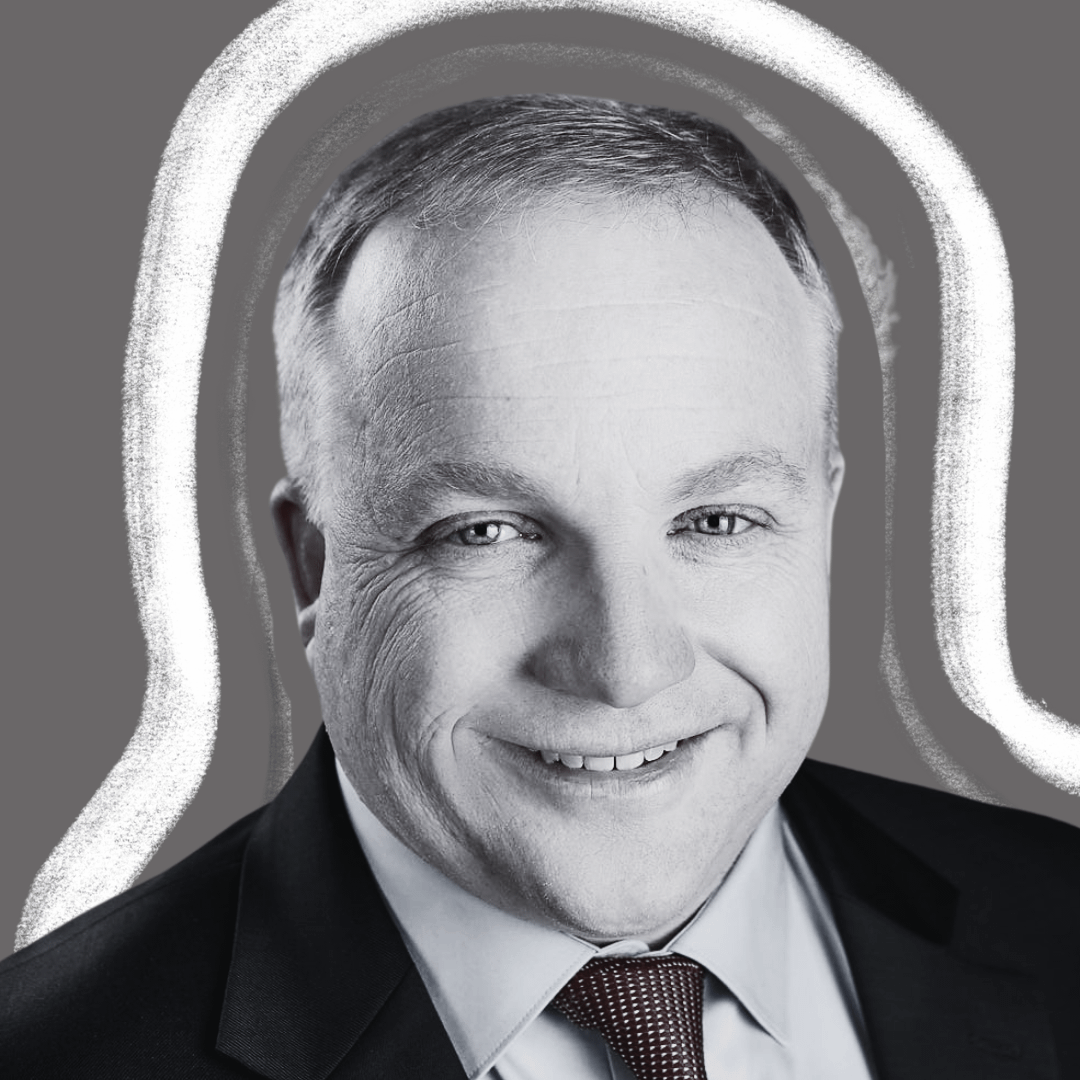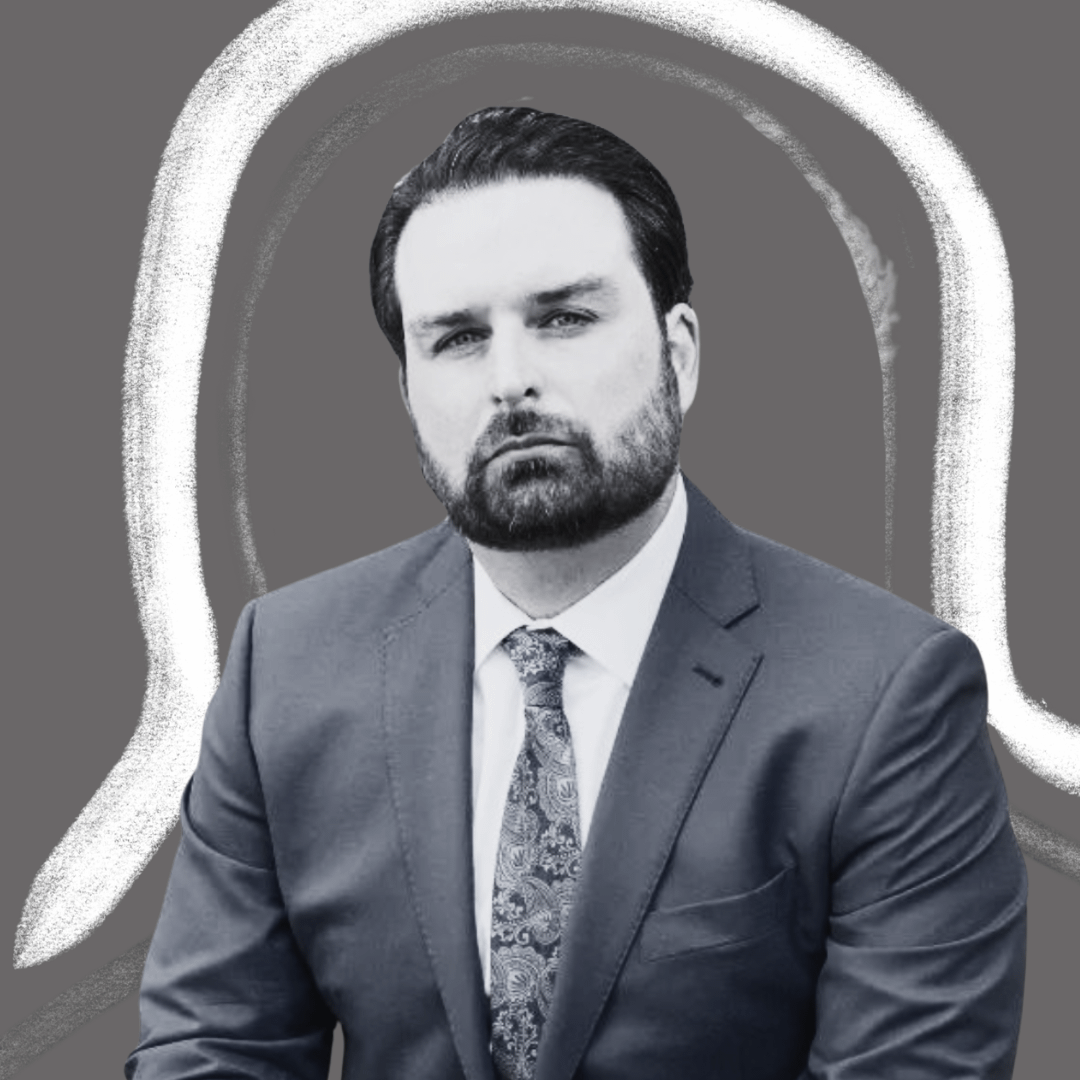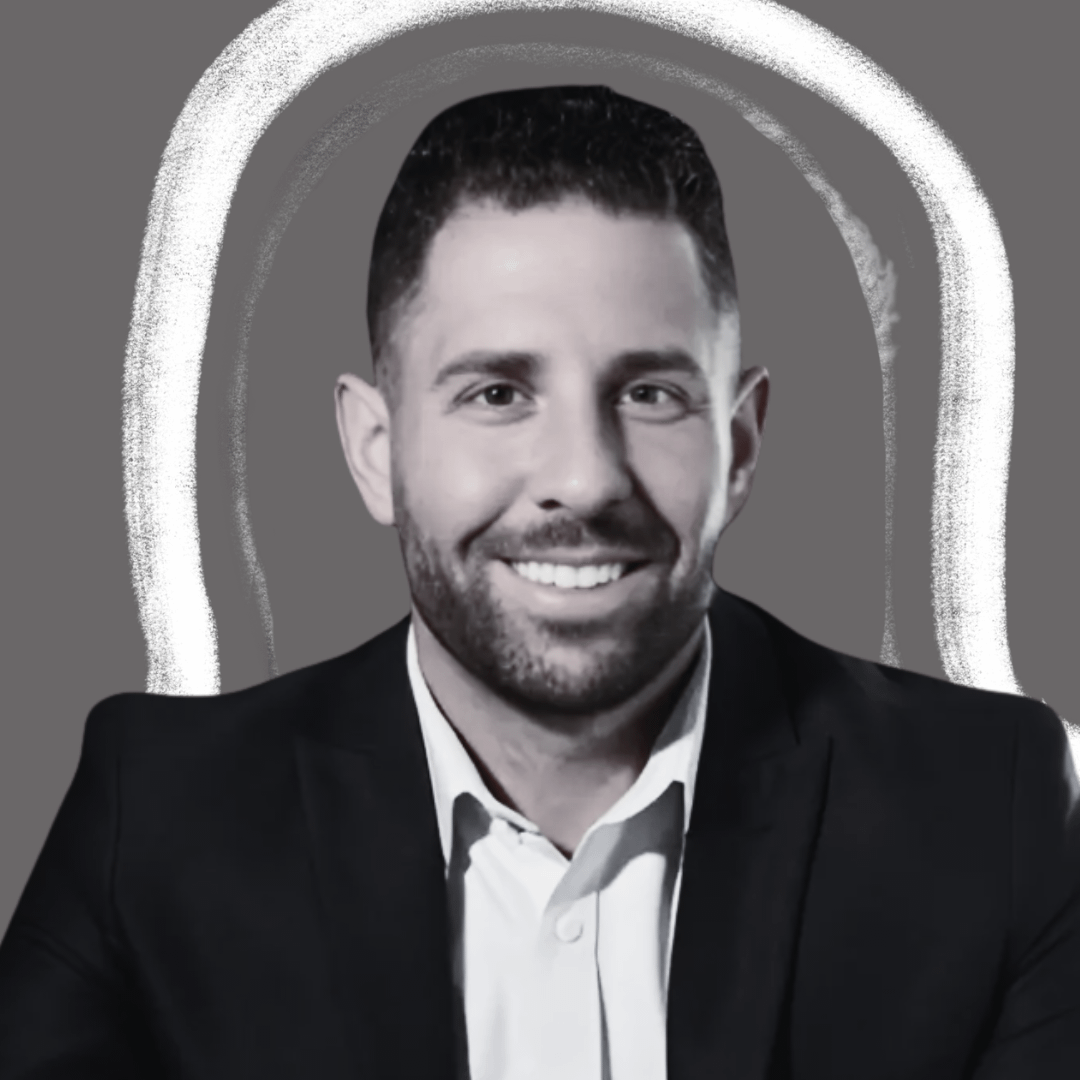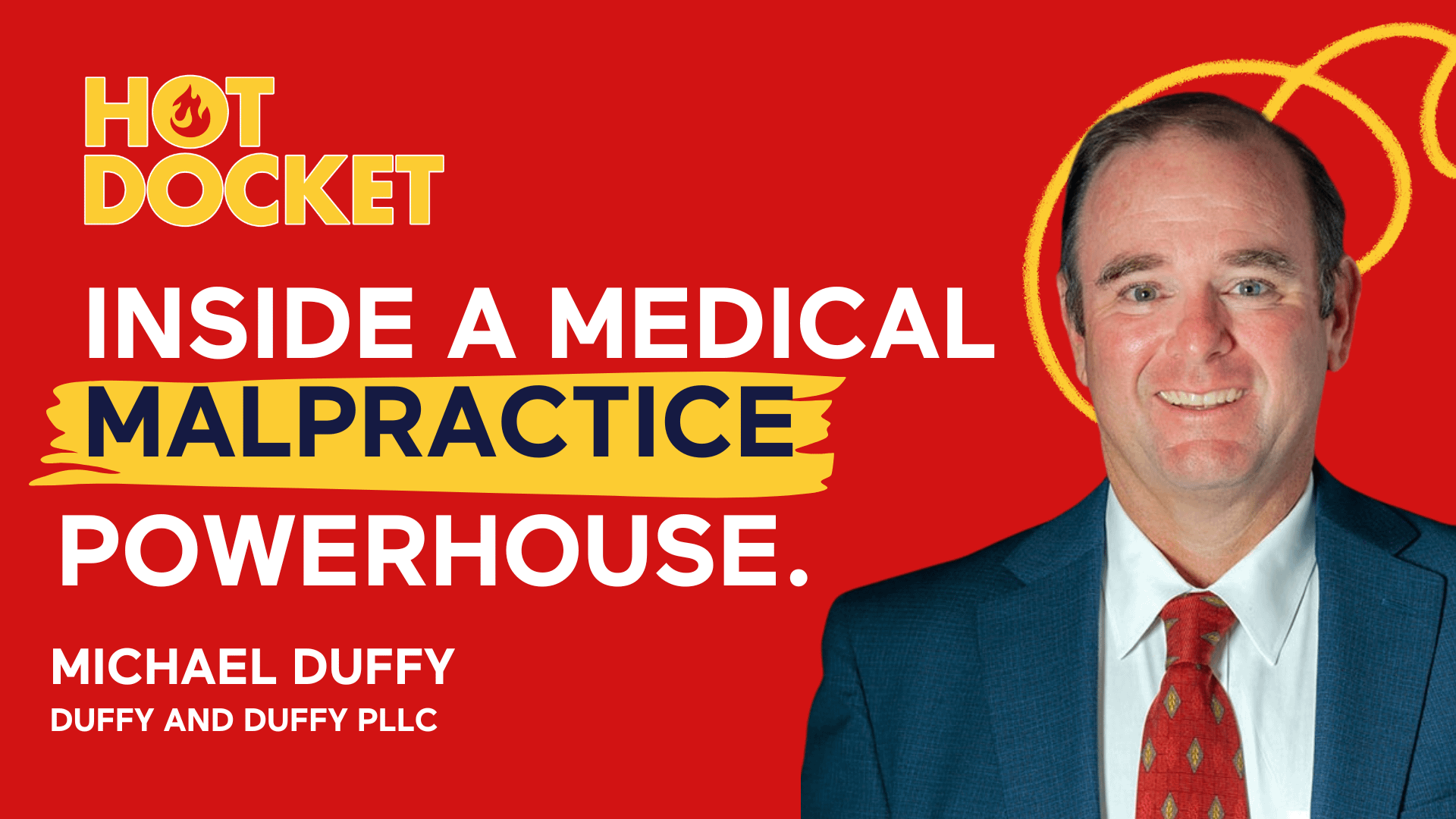
Episode Overview
Want to know how the top medical malpractice firm in Long Island came to be so successful? Today, you’ll learn from one of their managing partners the strategies they used to rise to the top.
In this HotDocket episode, we’re joined by Michael Duffy, Managing Partner at Duffy and Duffy, PLLC. Michael’s here to share expert insights into what it takes to thrive in one of the most complex areas of law.
From foundational strategies and market insights to community concerns and the influence of AI, Michael highlights crucial factors to building and scaling a medical malpractice powerhouse.
If you’re looking to scale your medical malpractice firm and become a top tier practice in your state, you’re in the right place. So, tune in to learn from the best!
Then, stay tuned for a riveting game of “ChatGPT Writes a Demand Letter” where Michael evaluates a demand letter written by ChatGPT for a medical malpractice claim arising from a doctor amputating the wrong limb. Will it pass or fail? Listen ‘til the end to find out!
Episode Links
Want to hear more from elite lawyers and industry-leading marketers?
Follow us on Social Media for more
Episode Topics
- The most common pitfall/mistake medical malpractice lawyers make.
- 10 tips every medical malpractice lawyer needs to know.
- What’s so different about litigating medical malpractice claims compared to other cases?
- Why understanding a medical chart is a core differentiator for medical malpractice firms.
- How AI can help medical malpractice lawyers understand their cases better.
- Tips for building and maintaining strong client relationships.
- How to build winning referral relationships as a medical malpractice lawyer.
- The biggest medical malpractice issue in New York right now & How lawyers can help.
Key Actionable Takeaways for Law Firms:
- The best advice Michael ever got was: You should do what you’re best at and if you’re the best at it, it’ll work out.
- Control your firm’s profitability by handling cases in-house.
- Focusing on medical malpractice can lead to unparalleled expertise and recognition.
- Invest time in detailed case investigations to achieve better outcomes.
- Always advise potential clients to seek knowledgeable legal counsel.
- Stay ahead in the competitive landscape by embracing new marketing approaches.
- Be aware of the socioeconomic factors affecting medical treatment and outcomes.
Episode Transcript
Michael Duffy [00:00:04]:
It’s a very competitive landscape for all types of personal injury cases. And in order to avoid losing a client or in order to avoid another firm poaching a client, law firms will frequently put a case in suit just because they see big damages or they think they understand the medicine. I think they just move too quickly. I think they’re afraid of the competition.
Bobby S. [00:00:24]:
Welcome to Hot Docket, the show where we talk about winning marketing strategies that have built the most successful law firms.
Andrew N. [00:00:29]:
Join us every two weeks for the latest trends and tactics to grow your law firm.
Bobby S. [00:00:35]:
Welcome to the Hot Docket podcast. Today we’re going to be talking about building a top medical malpractice firm. We have with us Michael Duffy, who’s the founder of Duffy and Duffy, the largest medical malpractice firm in Long island, are one of them. So be a great guest.
Andrew N. [00:00:50]:
Yep. And I think it’s going to be interesting to talk about this because medical malpractice oftentimes can be a little bit more complicated and more capital intensive to work up the cases. And it’s an area where a lot of personal injury attorneys or other attorneys that may send referrals, they’d learn a lot by hearing from one of the best.
Bobby S. [00:01:10]:
Yeah, I find it so weird where it’s like, what’s the conversion rate? When we used to do this at Morgan, like less than 1%.
Andrew N. [00:01:16]:
It’s very low. So they’ve got to be pretty strict at intake knowing that it’s got to be a good case to take it on.
Bobby S. [00:01:23]:
Yeah, you stub your toe. It’s probably not a claim.
Andrew N. [00:01:25]:
That’s correct.
Bobby S. [00:01:26]:
Probably not a claim. All right, so with that, I’m introducing Michael Duffy of Duffy and Duffy. Thanks for joining us today, Michael.
Michael Duffy [00:01:39]:
Thanks for having me.
Bobby S. [00:01:40]:
Of course, Andrew. I think you’re the first up here.
Andrew N. [00:01:44]:
All right, so today’s theme is scaling a medical malpractice firm. It’s becoming a top tier practice in your state. So can you walk us through your background of yourself as an attorney and kind of the history of your firm?
Michael Duffy [00:01:57]:
So this firm started more or less in my garage in 1995. I had worked for a short time after law school. I had worked for a very small practice and realized pretty quickly that the way to make money was not to work for somebody else, but was to generate your own cases and to maximize your profit that way. So I started working on my own, and I. It was a challenge. It was a specific challenge because I really just did not anticipate how expensive it was going to be to run these cases. At the time, I was relatively newly married. I had a baby and a mortgage and had to quickly figure out how to turn this into a profitable enterprise.
Michael Duffy [00:02:49]:
So that started. And basically what I did was I packed a briefcase. This goes back, obviously, a long time, and the industry and the world were very different at that time. There were a lot of cases that needed to be tried far more than there are now. So I would pack a briefcase that was empty. It just basically had papers in it. And I would go to court and I would pretend I was being very, very busy. And eventually people were so happy to see me working so hard that they would give me more work.
Michael Duffy [00:03:21]:
So I ran around and I became a guy that just tried cases. I tried a lot of cases, any type of case, I would try. And my father was doing medical malpractice for a very long time. He and his partner at that time more or less dominated medical malpractice in New York. Not too challenging to try to come into that world. So I started trying some of those cases for people. And then I quickly realized that on Long island, there were a lot of lawyers at that time who had medical malpractice cases that had no idea what they were doing. And they would get to a point on the case and then they would just more or less leave it sitting in their office because they didn’t know what to do with it.
Michael Duffy [00:04:08]:
From that point forward, they’d get it on the trial calendar and then they, they would have no idea how to try the case. So I ran around and I referred to it at the time as my stinky fish tour. I would go and I’d sit down with lawyers. My father’s name certainly helped me open some doors that I probably would not have been able to open as a 26, seven, eight year old lawyer, whatever I was. And I tell them that you have these files, I know you have these files sitting in the corner of your office, and they stink like yesterday’s fish, and they’re not going to get any better. Give them to me. I’ll try them and they’ll be over with one way or the other. And they did.
Michael Duffy [00:04:43]:
And, you know, somehow they believed, just because I said it, that I knew what I was doing. So I went and I tried a lot of medical malpractice cases, and I lost a lot of medical malpractice cases because those cases shouldn’t have been taken in the first place. So that’s more or less what I did until about 2000. My father and his partner split. My father came out to the island of, and he told me he was going to open a practice on Long island trying medical malpractice cases. And I told him he couldn’t do that, that there was a kid named Duffy doing exactly that on Long island and I didn’t need the competition. And my father, being my father, said, that’s great. Good luck to you and I’ll see you at Thanksgiving.
Michael Duffy [00:05:30]:
So I did what any good Irishman would do at that point. I called my mother and I told her that she had to do something about this. And so eventually we came to, we came to an agreement. And so that was in about 2000. And from that point forward, the practice really took off. My father was an unbelievably good lawyer. He passed a few years back now unbelievably good lawyer, and really gave me free rein to run the firm any way I wanted to as long as his trials were ready to go and nobody bothered him. So that’s what we did.
Michael Duffy [00:06:03]:
And over time we scaled it up aggressively and here we are.
Bobby S. [00:06:09]:
I think like that concept of doing the things that other people don’t want to do is probably a pretty scalable one in terms of growing a business. If you’re going to be the guy who can like, pardon the French, but shovel the shit, that’s like, you’re going to, you’re going to find business.
Michael Duffy [00:06:23]:
Absolutely. Absolutely. I mean, there’s, there’s, to continue the analogy, there’s tons of shit out there, and if you’re willing to shovel it, I mean, you know, somebody’s got to do it, it’s got to get done. And people are always happy to have the shit moved off of their plate and onto yours.
Andrew N. [00:06:38]:
So that being said, the best advice.
Michael Duffy [00:06:40]:
I ever got was when we were making the decision that we were going to really focus extensively on medical malpractice, a very good friend, good businessman, said you are the best that he knew at medical malpractice and you should do what you’re best at and it’ll work out. If you are the best at it, it’ll work out. Don’t try to do everything. Don’t try to be somebody you’re not. Don’t try to do an area of law that you’re not that good at. Or maybe you can get good at it, but you’re not there. Now, you are good at this and maximize this. And that’s what we did.
Andrew N. [00:07:16]:
It makes a lot of sense and it kind of segues nicely into our next question of what do you think your firm does better than any, anyone else. And what drives that success? So we, you might be one of the best at medical malpractice in New York, but what about your firm in particular, kind of sets you up to being very good at that?
Michael Duffy [00:07:36]:
Well, a couple of things. I think the first is, for a variety of reasons, we’re well capitalized. So these. I think you guys mentioned this in your introduction, that they, you know, these are very expensive cases. It’s not a typical auto case or something like that. If you lose a medical malpractice case, you can be out $150,000, $200,000 in disbursements, no problem. So having the resources to be able to take on these cases has been very helpful. But I think the thing that makes us better than, in my opinion, anybody else out there is the investigation we do into these cases before we put them into suit is unparalleled.
Michael Duffy [00:08:20]:
We have a philosophy that by the time the defense firm finds out that the case even exists, we want to have analyzed the case to every degree. We know what we want to do, know how we’re going to do it, know what we need out of the defendants and deposition, and move the case as quickly as possible. We don’t like adjournments, so we use as much time as we need to before we put the case in suit, within the statute, of course, to make sure that everything is taken care of. And we don’t ever have to ask for an adjournment because we’re not ready. And that’s what we try to do. And by doing that, we keep the defense on their heels. They never get a chance to really learn the file the way we did. And because there’s a lot of pressure on them to do other things.
Michael Duffy [00:09:02]:
They’re not just working on this one file. So we are able to really push them to trial aggressively. And by spending that time and the money and the interaction with other professionals, medical professionals, to make sure that we understand the medicine and we understand the logic of the medicine, I think that really is what drives our success more than anything else.
Bobby S. [00:09:27]:
And to piggyback on that, is there like a single thing or set of things that you think is the most common pitfall other med mal firms might fall into?
Michael Duffy [00:09:36]:
It’s a very competitive landscape for all types of personal injury cases. And in order to avoid losing a client, or in order to avoid another firm poaching a client of, law firms will frequently put a case in suit just because they see big damages or they think they understand the medicine and I can’t tell you how often those cases wind up landing on our doorstep. And we say, there was never a case here. There may be huge damages, but there was never a case here. And then the firm, they’ll ask us to try it or to take it over, and it’s just not there. So I think they just move too quickly. I think they’re afraid of the competition. We don’t concern ourselves with that.
Michael Duffy [00:10:17]:
We very, very rarely have a situation where we’re substituted out of a case. But if it’s going to happen, it’s going to happen. I don’t allow myself to worry about it. We’re going to process the cases the way we think they should be processed, and I think history has shown that our process works very well.
Andrew N. [00:10:36]:
Can you highlight some of the differences between litigating a medical malpractice claim as opposed to something like a run of the mill motor vehicle case?
Michael Duffy [00:10:44]:
Oh, there are so many differences. You know, I used to love trying auto cases, you know, because nobody knew the medicine, and, you know, you’d be trying a case where there was a surgical procedure and the defense firm had never tried a medical case, they’d never seen medicine because they were getting cases dismissed on the liability phase, and then they would settle. So certainly the need to know every single detail of a medical record is a huge portion of a medical chart of a medical malpractice case and an auto case. My dad used to refer to an auto case as a case he could put into his pocket, a file he could put into his pocket at the end of the day, because, you know, the auto cases limited factual issues in play where the medical malpractice case, you could spend days cross examining a doctor just on the liability phase without even getting into the causation or the damages aspects of the case. So that certainly the need to know the medicine to the nth degree is a huge difference. The length of time that it takes to process the cases, to go through it. You know, even taking depositions of doctors, you know, if we name three or four doctors in a case, it could take two years to get those depositions because doctors are busy people, and courts tend to be very deferential to doctor schedules. You know, they have this theory they’re saving lives or something like that, where, you know, you or I in an automobile case, they’re just going to tell us to show up on a particular day and do the deposition so things can move a lot more rapidly.
Michael Duffy [00:12:32]:
But the trials themselves, most medical malpractice cases at least in New York, take weeks to try. You’re certainly down for two to three weeks at a minimum. An auto case, it can be done in a matter of days. It could be done in a matter of hours. Here in New York, we have a process where you can do basically a rapid trial where you’re done in 24 hours on an auto case. So I think they call it a summary trial or something to that effect. So it’s very important to handle all aspects of the medical malpractice case, and that’s going to take a long time at trial. So really it’s a question of the resources in terms of time, as well as, of course, the experts.
Michael Duffy [00:13:20]:
Most medical malpractice cases are going to take two or three experts. And in an auto case you may bring in an accident reconstructionist or something along those lines, an engineer, but you’re certainly not going to be bringing in a nephrologist, a urologist, a radiologist, and every other ologist. There is.
Bobby S. [00:13:37]:
Something you said earlier is actually, I’m going to tease something that’s going to come later. In the episode, you said something about fully understanding a chart and that being one of the core differentiators in your practice, are you seeing rise of aih, being able to potentially summarize medical records? Is that something you’re looking into? And do you see like a use case for that in the near future?
Michael Duffy [00:13:58]:
So I certainly think there’s going to be, I mean, you know, if it is as advertised, the machine learning should be able to do everything we’re doing in terms of learning. So if I tell a lawyer that works for us to go learn something about cardiology, the machine can do that just as well. I think one of the major issues that’s going to come into play is medical malpractice cases as opposed to the practice of medicine. The medical malpractice is largely logic based. Yes, it’s based in medicine, but we’re applying logic to the medicine. And often in medicine they do not apply logic. And that’s where you find yourself a very common circumstances where our claim is that a doctor failed to follow a differential diagnosis, which is essentially a list of all the possible things that could be causing us a given set of symptoms or circumstances. Many doctors will tell you that the way to approach a differential diagnosis is to go to the thing that is most likely first to rule in or rule that thing out.
Michael Duffy [00:15:08]:
We view it logically that you go to the most dangerous thing first, and you need to rule out the most dangerous thing and then you can continue to rule out those things that are most dangerous until you get to the thing that is least dangerous. Obviously, that’s a simplification of a significant process. But the idea being that we apply logic, I am not yet convinced that AI can learn logic the way humans can. But since the people that have created AI are a whole lot smarter than I am, I suspect that at some point in time they’re going to.
Bobby S. [00:15:42]:
Yeah, it’s definitely still in that phase where it’s not a solution, it’s a tool. So maybe we’ll get there where it’s like you can plug in facts of the case and it gives you a defense or like a claim. We’re not there yet. And later in the episode on that, a little bit more deeply.
Michael Duffy [00:15:59]:
Yeah. And there are services that you can send a medical record to, and they will have AI scan the record and give you some sort of timeline and things of that nature. And that’s fine as far as it goes, but it’s not really helping you analyze the case.
Bobby S. [00:16:11]:
Right. Right. Makes a lot of sense, and there’s a lot of challenging things about your practice type, and I want to touch on that a little bit on the opposite side of things, not so much on the litigation, but more in terms of marketing. So when you’re marketing med mail in general for cases in New York, can you walk us through some of the challenges and how you’ve approached them?
Michael Duffy [00:16:31]:
Well, I think the biggest challenge is kind of changing over time, and the biggest challenge, I think, is that it’s a very labor intensive marketing process. It’s uncommon that you’ll see mass advertising specifically for medical malpractice cases. Certainly in New York, there’s a reduced fee schedule in New York, their version of tort reform, as opposed to other states where you might get a much higher percentage and make it a much more profitable enterprise. In medical malpractice in New York, the fees are reduced. So doing an ad campaign specifically on television or radio for that has limited value. So it’s very much a one on one sit down with people, explain what you do. Go to individuals that run law firms and spend time talking to them and going to dinner and playing golf and all those sorts of things. So it’s very, very labor intensive to build those relationships and then maintain those relationships.
Michael Duffy [00:17:35]:
Certainly you can do some things. We do newsletters and I, you know, emails and blasts, things like that, but those also have limited value. They might keep your name in front of the prospective referring lawyer, but unless you’re going to speak to them and spend some time talking to them, it’s unlikely they’re going to remember you when the case opportunity comes along. So it’s very, very labor intensive. I think that’s changing a little bit with there are a lot more national brand type advertisers that are soaking up a lot of the cases. So, you know, I think those folks are ultimately replacing that individual as time goes on.
Andrew N. [00:18:17]:
Yeah. So I think you brought up an interesting point about the referrals. So for many medical malpractice firms, referrals are their lifeblood because like we were talking about in the intake where, let’s call it 95% at least, probably closer to 99% of intakes will get rejected because there’s probably not a good claim there on the front end. So advertising for a conversion rate that low, a lot of times won’t work. So those cases, a lot of times will come into the large personal injury advertising firms and they will end up getting referred out because to a, they’ll get referred out to a trial lawyer on the medical malpractice side, like yourself. But a lot of times before, it was more fragmented and smaller shops would get a case because it’s, you know, their uncle and a lawyer’s a lawyer to an individual. So I’m curious how your firm looks at that. Where there’s consolidation on the advertising side for injury, a lot of the cases are referrals.
Andrew N. [00:19:27]:
How does your firm create a strategy around winning those referral relationships, whether it’s an attorney referral, maybe a medical referral, or even a past client recommending someone?
Michael Duffy [00:19:40]:
So what’s interesting about the past clients, you know, we’ve tried mining the data and all that. We reject so many cases that people are generally angry when you reject them. So now sending these folks emails saying, you know, what a wonderful person you are and you should send us cases, they don’t take so kindly to that. We’ve run into some issues in that regard. So I find that to be a less valuable tool available to us. I do think for a very large firm, it’s a hugely valuable firm tool, especially where, you know, a mass tort firm is able to mine that data for a lot more information than we might be able to do. So in terms of your question, I think you don’t shy away from it. I know I do a lot of work with some large national brand type advertisers when we first started building relationships.
Michael Duffy [00:20:45]:
In that regard, most of the folks who consider themselves sort of at the top tier of the industry would be very aggressive with me, that we should isolate them out, and we should not work with them as sort of a colluded group because they don’t belong in medical malpractice or they shouldn’t be advertising or whatever it is. You know, I thought that was a foolish approach then, and I think it would be a foolish approach now. You certainly cannot stop progress. You may not like some of the advertising that gets done. You may not. You know, I’m an older person. I don’t think I’ve ever been on TikTok unless somebody sends me something. But you certainly can’t deny that it’s effective in generating cases when done well or any, or anything else.
Michael Duffy [00:21:31]:
You know, for my generation, I guess it’s Facebook, but, you know, for any other program, social media site, whatever comes along, you certainly need to embrace it, and you need to be out in front on those things, and you need to be working with the people who are better at this than you are. And I think in terms of advertising, and I certainly think you need to recognize that as lawyers, and bluntly, a lot of medical malpractice lawyers have a feeling about themselves that they’re the best in the business. You have to recognize that just because you may be a very good medical malpractice lawyer does not mean you’re very good at generating cases, and you may not be very good at, you know, figuring out how to market to a population that is looking at things entirely differently than we did when I grew up. You know, we grew up with three channels on the television. You know, it’s an entirely different dynamic. And you have to be open and available to do that. And you can’t shy away from the people that are doing it. I think you have to be very aggressive in terms of going out and meeting with people that are doing this kind of marketing and explaining why you’re good at what you do and showing them that you’re good at what you do.
Michael Duffy [00:22:48]:
And then, you know, with luck, some work comes to you. But none of my advertisers should come.
Bobby S. [00:22:54]:
To you carrying a briefcase. Carrying a briefcase with papers, carrying a briefcase.
Michael Duffy [00:22:58]:
I mean, it really doesn’t change. That was just a different market that I was trying to appeal to. Right. I mean, at the end of the day, we’re always selling what we do, no matter what you are, in terms of where you are in the law, you know, whether you’re the trial guy or you’re the person who’s working up the file or you are, you know, whatever it may be you’re ultimately selling yourself, not yourself, but you’re selling your services. And, you know, I don’t think it changes just because the medium changes. I think ultimately it’s the same product that you’re trying to sell.
Andrew N. [00:23:28]:
Are there any kind of current cases that you want to shine a light on that maybe other firms haven’t seen or don’t know about types?
Bobby S. [00:23:37]:
Sure.
Michael Duffy [00:23:37]:
You know, in New York, we have a huge problem with maternal death cases. The incidence of maternal death, particularly in the african american community, is significantly higher than is medically acceptable. And there’s a lot of discussion as to why that may be, but it. But it is happening. And there was a recent New York Times article on it in the last several months. I don’t remember, but it’s an ongoing problem. And we see a lot of, I’ll say, shenanigans in the medical records when those cases happen, trying to attribute the death to things that have. Have nothing to do with the doctors and things of that nature.
Michael Duffy [00:24:18]:
But when you dig deeper and you get into the pathology of things, you find out that what is claimed to was the cause of death is not really the cause of death. But again, that takes a lot of work and a lot of digging and a lot of understanding of the knowledge and knowledge of the medicine. So I think that that is an area that we’re seeing a lot of. I’m sure other, you know, firms are seeing. The concern I have is because we know that the doctors and the hospitals are often creative in how they maintain their medical records. Firms that may get a maternal death case and think they have a monster case on their hands because, you know, this poor young person passed away and left, you know, children behind. And whatever it may be, you know, that they’re running after that case because they think it has huge damages, and they may be making mistakes and saying yes or no based on what the record shows, and it medical malpractice in total. But certainly these very, very complicated medical cases really need to have somebody who knows what they’re doing on them.
Michael Duffy [00:25:25]:
And despite how big the damages may be, somebody who takes that case without that requisite knowledge and experience is probably not going to be as successful as they might hope they would be. And frankly, the industry has become such a thing that the insurance side of things, the ones who pay the bills, they know who, I mean, they have so much data that they maintain on every law firm. They know who’s trying cases and who’s not. They know who’s running medical malpractice cases and who’s not. They know who’s good at it and who isn’t. And if you happen to get hold of a giant case like that and you think you’re going to run with it and have your Perry Mason moment, you might, but you’re probably going to have to try the case because the carrier won’t know who you are.
Andrew N. [00:26:09]:
For the maternal death cases, what are the most common reasons that’s happening? Like what is the medical error that’s actually happening there in a higher proportion of those cases?
Michael Duffy [00:26:22]:
You know, frankly, the answer is, nobody knows what the medical answer is, but considering that it is significantly higher in the african american community and in the lower socioeconomic segments of New York and the hospitals that cater to those segments of New York. But, you know, it’s neglect. I mean, it’s just neglect.
Bobby S. [00:26:49]:
Yeah, yeah.
Michael Duffy [00:26:50]:
And every one of those, you know, this is someone who’s going in to deliver a child. So in most of the instances, the child survives. So now that child will never know his mother.
Bobby S. [00:26:59]:
Yeah. My wife’s a social worker. She used to work up in the Bronx. And it’s unbelievable the type of scenarios that she would have to deal with on, like, a day to day basis.
Michael Duffy [00:27:11]:
So, you know, we don’t have anything written, but we’ve been through it a number of times where we can compare similar medical circumstances in certain communities versus the Bronx or Brooklyn, particularly areas of Brooklyn that have now become gentrified, but at one time were among the poorest areas of New York or parts of queens that are, that are very, very, you know, suffering in terms of socioeconomic advancement and the same medical conditions treated drastically different than in other, more wealthy communities. It is, yeah.
Bobby S. [00:27:52]:
It all comes down to what the CBD codes and CPD codes and other billing stuff, medical billing stuff.
Michael Duffy [00:27:59]:
It comes down to where they think they can pay it, right?
Bobby S. [00:28:01]:
Correct. Yeah, it’s wild. I was talking with a firm who was going really in depth on, like, a medical billing problem and, like, trying to understand how to parse out the medical, using, like, OCR and all these other things, the medical billing codes from medical records and use it to intelligently value cases and all that kind of, like, good stuff. And, yeah, it’s really, really crazy to me how complex it is and seemingly unnecessarily.
Michael Duffy [00:28:26]:
Yeah. You know, the billing, there are so many instances of, of just circumstances where things are being done for the billing. There was a series of cases that we didn’t become involved in, but that had to do with the use of helicopters for medical transport and the massive overbilling that was taking place relative to that. I know some of my friends in Ohio were involved in that and just huge, huge billing nonsense. And really, just because they could.
Bobby S. [00:28:54]:
Yeah, because they could. Um, I. I. Yeah, it’s kind of infuriating, but, uh, I’m sure it’s even worse for you. It’s even worse for you. So we usually like to end these things with a little game. Today’s game is. I said earlier in the episode I was gonna tease it, so here it goes.
Bobby S. [00:29:11]:
Today’s game is chat write to demand letter. So I’m going to read off a demand letter written by chat GPT for a medical malpractice claim arising from the doctor amputating the incorrect limb. I want you to rate its interpretation or whatever implementation on a scale of one to ten. Okay?
Michael Duffy [00:29:37]:
You got it?
Bobby S. [00:29:38]:
Yeah. Get ready for a disaster subject. Demand for compensation due to medical malpractice. Dear doctor, last name. I’m writing to formally demand a compensation for the significant harm and damages I have suffered as a direct result of your negligence on date of surgery under your care at hospital. I was subjected to an egregious medical error when the wrong limb was amputated incorrectly. Oh. Wrong limb was amputated.
Bobby S. [00:30:01]:
This operation was intended to address brief description of original medical issue, but due to your actions, I’m now left with permanent disability and emotional distress. This letter serves as a formal notice that I am considering legal action against you and hospital name for medical malpractice. The basis of this claim is your failure to adhere to the accepted standard of medical care, resulting in irreversible harm. The consequences of this error have been devastating, including specific damages listed here. Under New York law, medical professionals are held to a high standard of care, and when the standard is not met, they must be held accountable. Your decision leading to the amputation of this incorrect limb constitutes a clear breach of this standard. As a result of this negligence, I have incurred substantial medical expenses for corrective surgery and ongoing rehabilitation and faced a drastic reduction in my quality of life. Therefore, I’m demanding compensation for the damages I have suffered, which include, but are not limited to, medical expenses relating to the wrongful amputation and necessary corrective procedures, lost wages, pain and suffering.
Bobby S. [00:31:00]:
Any other costs directly related to the incident. To this incident. I expect a response to this letter within 30 days to discuss a fair and just settlement for the damages I’ve endured. Failure to respond within this timeframe will leave me with no choice but to pursue all legal remedies under New York law, including filing a lawsuit. So is that, should I just, like, plug this in and send it? Is that good to go?
Michael Duffy [00:31:20]:
Yeah, I mean, you know, if you want. I mean, I don’t know how to rate that on a number because it’s just in medical malpractice that would get you nowhere. I mean, so a couple of things. One, an individual writing that, they would love to have an individual write that letter to them because they’re going to offer you, you know, on your $10 million case, they’re going to offer you you $500,000 and be really, really happy when you take it. So this happens, it happens in hospitals a lot where the risk management will come down and tell you how sorry they are and say, we want to do right by you and da da da da. In the end, they don’t want to do right by you. They want to do right by them. We had a case some years ago with a woman, came to me, basically said they promised, they offered her $100,000 a year for life as a result of the claim.
Michael Duffy [00:32:15]:
And I said, well, that’s nonsense. That never would happen. So I called the individual who I knew, and he said, well, maybe I did. So we settled that for what would be about $600,000 a year for life. I mean, they were so underselling it. So they would love to have you write that kind of letter. And the reality is a doctor doesn’t have anything to do with it. It’s an insurance company.
Michael Duffy [00:32:40]:
You know, he’ll just send it on to his insurance company. So. And lastly, you know, in my experience, anytime you basically say, you know, do what I want or I’m calling my lawyer, they probably are going to challenge you to go ahead and call that lawyer. So, you know, as far as it goes, I think it’s fine. I would discourage anybody listening to this for sending such a letter. I would, I would talk to a lawyer who knows what he’s doing first.
Bobby S. [00:33:05]:
We would not a sales pitch, for the record.
Michael Duffy [00:33:07]:
Yeah, yeah. You don’t have to call me, but call somebody who knows what they’re doing. Yeah. You know, because the hospital, I mean, you got to remember, right, insurance companies are there for the purpose of taking money in and not putting money out. They’re not there to do the right thing. They’re not your friend. At no time are they trying to do right by you. They’re always trying to do right by them and their shareholders.
Bobby S. [00:33:31]:
And I think you might have given us a better name for the episode call someone who knows what they’re doing. That’s a great name. So thanks for joining us, Michael. This was great chatting, and I definitely learned a lot.
Michael Duffy [00:33:40]:
Thank you so much. Thank you for having me. I really enjoyed it.
Bobby S. [00:33:43]:
Of course.
Andrew N. [00:33:44]:
Thank you. So I thought that was super interesting, and maybe we need to carry a briefcase around a lot more and act busy. And I love that story.
Bobby S. [00:33:59]:
Yeah, me too. Yeah. That’s the growth act that we’ve been missing. All right. It’s like one of those, like, five things you didn’t know you need, and then it’s like, number one, a briefcase full of papers.
Andrew N. [00:34:08]:
Yep, definitely. I think briefcases are gonna have a big comeback.
Bobby S. [00:34:12]:
Yeah. Yeah. Next thing we. Next thing we need to figure out is how to get the dog not to bark during an episode. That’ll be problem like two point b. But this was great. I learned a ton. Medical malpractice is just one of those weird case types, and I think for us, especially marketers, where our goal is typically get people in the door, not necessarily close a case, it’s like an especially, just kind of weird thing for us to think through and implement.
Bobby S. [00:34:39]:
And so getting to have these conversations and learn more about the back end of the case is always really positive.
Andrew N. [00:34:44]:
Yeah. I think another part that’s interesting is a lot of personal injury firms will try to horizontally expand and bring on something like workers comp or medical malpractice into their practice, thinking maybe they can hire an attorney that’ll handle a few claims a year, that sort of thing. And I think every time you talk to someone who really knows what they’re doing within that world, you realize it’s a lot more complicated, and it might take a lot more cash than people are thinking it is. And there’s just a lot of unknown variables that they’re not accounting for. So I think that’s why a lot of that’s why the landscape looks the way it does. Where this referral relationship exists oftentimes between the big advertising firms and trial lawyers that are just really, really good at what they do.
Bobby S. [00:35:31]:
Yep. Yep. This is not send a demand letter and you’re done, as we saw. So thanks again, Michael, for joining us. This was a great episode, and we’ll see everybody on the next episode of Hot Docket podcast. We hope you’ve enjoyed this episode of Hot Docket, where your hosts, Bobby and Andrew, founders of Meanpub, the marketing agency for ambitious law firms, have questions about.
Andrew N. [00:35:51]:
Marketing or anything we covered today. Email us@barcug.com. dot.




